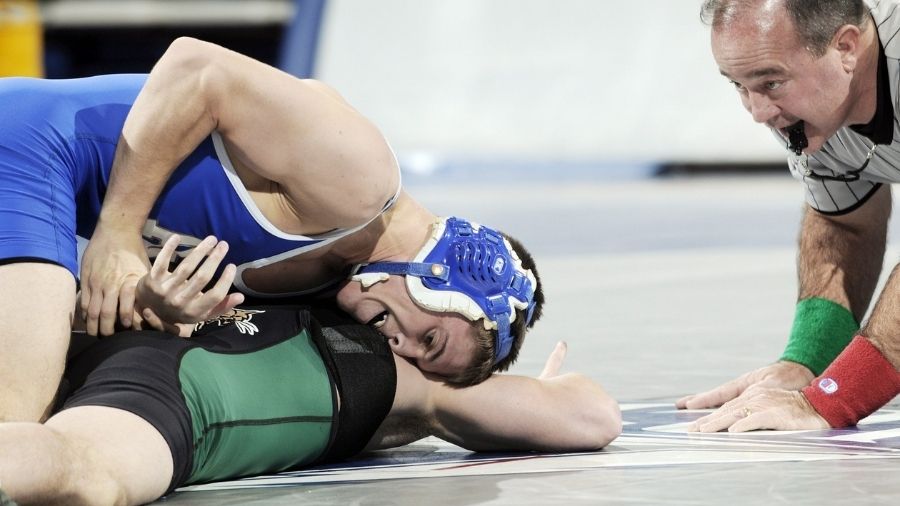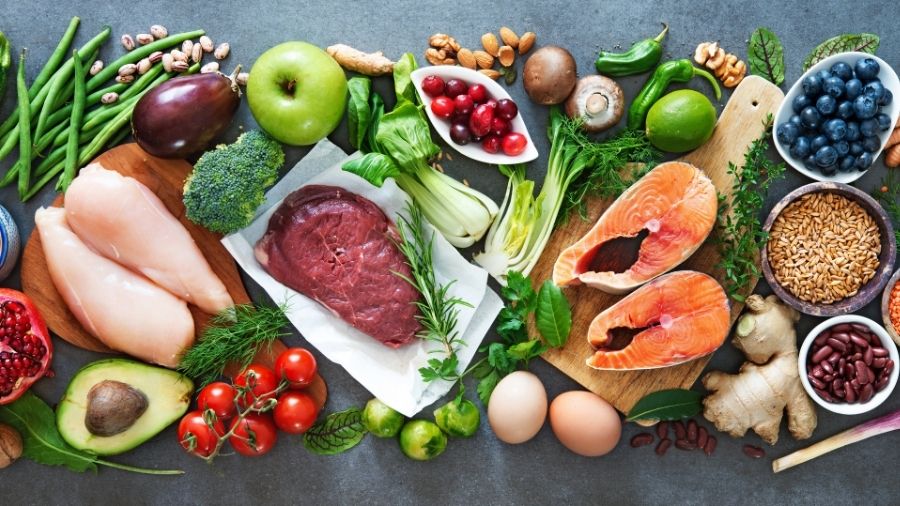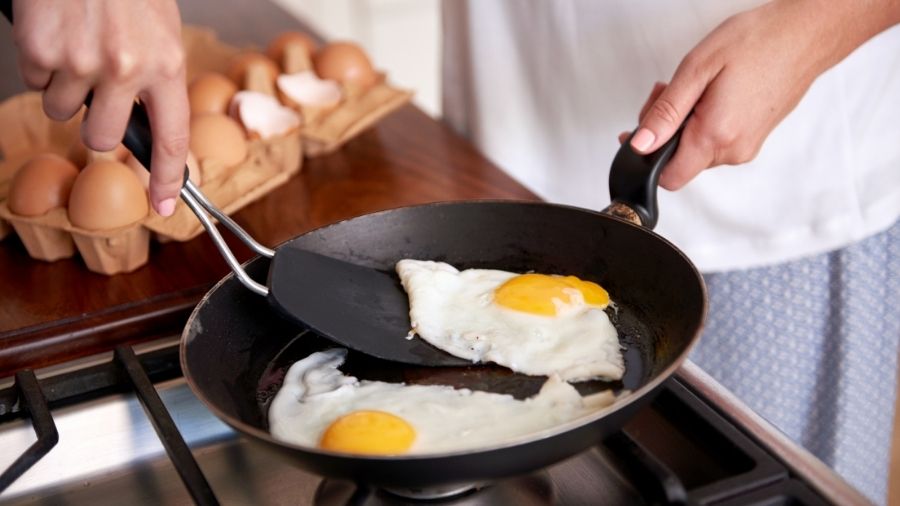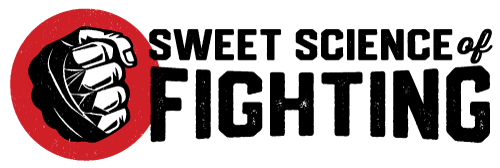If you want to dominate your competition on the mats, having extra muscle mass can give you a physical advantage over your opponents. Being able to execute and defend techniques with more force is going to lead to greater takedown and shot stuffing success.
A wrestler's diet to gain muscle must involve eating at a caloric surplus with moderate protein, high carbohydrates, and low fat to adequately fuel high-intensity training and gain muscle mass.
I'm going to break down exactly how you can diet to gain muscle so you can be self-sufficient and gain weight for wrestling.
How Do Wrestlers Gain Muscle?
Wrestlers gain muscle by stimulating the muscles to grow through strength training and eating in a caloric surplus to build new muscle mass. If you want a training program done for you to pack on muscle mass specifically for wrestling, don’t sleep on my 12-week offseason training program for wrestlers.
Here are some guidelines for lifting weights to gain muscle for wrestlers:
For a wrestler’s diet, here are the guidelines for gaining muscle with limited fat:
I’m going to walk you through this later in the article.
What Foods Are Good For Wrestlers To Gain Muscle?

The foods you eat to gain weight as a wrestler are going to vary depending on how you like to eat, what you like to eat, and where you live in the world. But I’m going to provide a list of foods that would be considered staples in your bulking diet for wrestling so you can pack on muscle.
Protein
Carbohydrates
Fats
Combination Foods
How Much Protein Does A Wrestler Need To Gain Muscle?

The current consensus for daily protein intake to gain muscle is between 1.6g/kg (0.75g/lb) – 2.2g/kg (1g/lb) of body weight [1]. Because you will be engaging in a lot of high-intensity activity (wrestling training and hitting the weights), you may sit on the lower end of this range.
5 Step Blueprint To Build A BJJ Strength Workout To Demolish Your Opposition
Learn how to plan your strength training to maximize transfer to the mats.
This may sound counterintuitive. Why would you want to eat less protein when trying to gain muscle for wrestling? There are two reasons:
So, instead of taking up a greater percentage of your total caloric intake with protein, you can lower it slightly and eat more carbs (that’s the dream isn’t it?) to fuel your training and muscle growth.
What Should Wrestlers Eat For Breakfast To Gain Muscle?
What you eat for breakfast as a wrestler looking to gain muscle is going to depend on your training schedule. If you train early in the morning, your first meal of the day is going to be drastically different from someone who doesn't train until the evening or midday. I’m going to run through both options for you so you have options if your training schedule changes.
Early Morning Training Breakfast Options
A high-calorie meal is not an option here. You will need to save that for after your training. The most important thing to consider in this meal is the ease of digestion. You want to get just enough food to fuel your training but not too much that it's sitting in your stomach while you are smashing weights or people on the mats.
Here are some easy to digest options you can try:
If you find that these meal options digest too quickly in that you feel very hungry during training, add a little bit of fat to the meal to slow digestion. This could be as simple as a Tbsp of peanut butter.
Breakfast Options To Gain Muscle
Because you are training later in the day, you can load up at breakfast with a bulk of your calories. Here are some options for a wrestler’s breakfast:
The world is your oyster when you don’t need to train until later in the day. Getting food from all three macronutrients (protein, carbs, and fats) will bump the caloric value of the meal making it easier to reach your target by the end of the day.
What Do Wrestlers Eat Before A Match?

Your last big meal should be approximately 4 hours before your wrestling match. After that, you can refuel as you see fit at approximately 2 hours and 1 hour away from your match.
Your meal 4 hours before can be your typical meal (like the breakfast examples above) whereas your top-up meal closer to the match will be like the easy digest options I gave.
But you can add things like jelly sweets, sports drinks, and other easy-to-digest carbohydrates.
Wrestlers Diet To Gain Muscle
Now the fun part. You have three main macronutrients:
The ratio of these three macronutrients will dictate your total caloric intake each day. Why is this important? Your total caloric intake is what dictates whether you gain, lose, or maintain your bodyweight.
Your macronutrient breakdown generally dictates the quality of your bodyweight when you are training adequately (i.e. muscle mass or fat mass).
This will form the basis for calculating your caloric and macronutrient intake. To track your calories, use the free app MyFitnessPal where you can enter all of your food data.
Calculating your daily caloric intake can be tedious, and cost you a lot of money if you decide to use the gold standard method in a laboratory. Luckily, you don’t need to do that using this one, easy trick.
Simply take your bodyweight in pounds (your morning weight after using the toilet but before any fluid or food is ingested) and multiply it by 16 or 17. This will give you a rough estimate of the calories you need to eat daily to gain muscle mass.
For those that are training a lot, you may be 17 or higher. But that’s okay, you can make adjustments as you go. As an example, if you weigh 180 lbs, your daily caloric intake to maintain your bodyweight will range between 2880-3060 calories.
Let’s take a close average and say 2950 is our target to gain weight.
Calculating Daily Protein Intake
Protein is the easiest to calculate. Simply take your bodyweight in pounds and multiply it by 0.75 to 1. In our 180 lb example, this would equal 135 – 180 g of protein each day. Again, let’s take a rough middle and go with 160 g.
Some athletes love their meat and protein while others aren't so fond of it. Therefore, if you love your meat, you may opt for the higher end where those who are indifferent, may choose the lower end of the range.
This is completely up to you and your personal preferences. When in doubt, go toward the higher end.
Calculating Daily Fat Intake
Having adequate fat intake is important for proper hormonal function. However, many athletes go overboard with the low-carb/keto craze that is currently sweeping the world. You’re a wrestler.
A wrestler needs the energy to perform during high-intensity efforts over prolonged periods. This means you need to make room for enough carbohydrates to fuel your training and help you recover.
My recommendation for fat intake is between 25% of your total caloric intake. Let’s take our 180 lb athlete example who needs 2950 calories to gain muscle. Total fat intake should be 737 calories which, when divided by 9 (9 calories per 1 g of fat), we get 82 g of fat per day.
Calculating Daily Carbohydrate Intake
We now have our protein and fat intake sorted. Carbohydrates just fill in the rest of the calories.
Protein calories – 640 (160 g)
Fat calories – 737 (82 g)
Carbohydrate calories = 2950 – 1377 (protein and fat added together).
1573 (393 g) Calories from carbohydrates.
Macro | Grams | Calories |
|---|---|---|
Protein | 160 g | 640 |
Carbohydrates | 393 g | 1573 |
Fat | 82 g | 737 |
This breakdown of calories and macronutrients is an example of planning a nutrition plan and will change depending on your bodyweight and activity level. Now, hitting exactly 82 g of fat can be rather neurotic. So, each macronutrient is given a range so you’re not chasing the last grain of rice out of the bowl.
So, the macro breakdown will look like this:
Wrestler’s Diet Example
We are going to use our 180 lb athlete who needs 2950 calories a day to maintain their weight as an example.
Meal 1
4 Eggs (Size 7) + 2 Multigrain Toast + 100 g Pineapple + 40 g Quaker Oats
Meal 2
Smoothie: 250 ml Low Fat Milk + 1 Banana + 100 g Blueberries + 1/2 Scoop Protein Powder + 1/2 Tbsp Almond Butter
Meal 3
100 g Chicken Breast Cooked + 300 g Jasmine Rice Cooked + 50 g Avocado
Meal 4
100 g Canned Tuna + 300 g Baked Sweet Potato + 1 Tbsp Extra Virgin Olive Oil
Meal 5
80 g 93/7% Ground Beef Cooked + 120 g Pasta Raw + 124 g Pasta Sauce
Total Calories & Macros
Macro | Grams | Calories |
|---|---|---|
Protein | 162 g | 648 |
Carbohydrates | 401 g | 1604 |
Fat | 79 g | 711 |
Total Calories | Cell | 2963 |
Add leafy green vegetables as you see fit as these won't add enough calories to worry about tracking.
Summary
A wrestlers diet to gain muscle should be high in carbohydrates to fuel your training. Adequate protein and fat are also needed to support muscle growth and hormonal function. This, on top of a sound weight training program is how to gain weight for wrestling.
References
1. Morton, R. W., Murphy, K. T., McKellar, S. R., Schoenfeld, B. J., Henselmans, M., Helms, E., ... & Phillips, S. M. (2018). A systematic review, meta-analysis and meta-regression of the effect of protein supplementation on resistance training-induced gains in muscle mass and strength in healthy adults. British journal of sports medicine, 52(6), 376-384.
2. Jéquier, E. (1991). Effect of different levels of carbohydrate, fat and protein intake on protein metabolism and thermogenesis. In Protein–Energy Interactions I/D/E/C/G Workshop; October (pp. 21-25).

